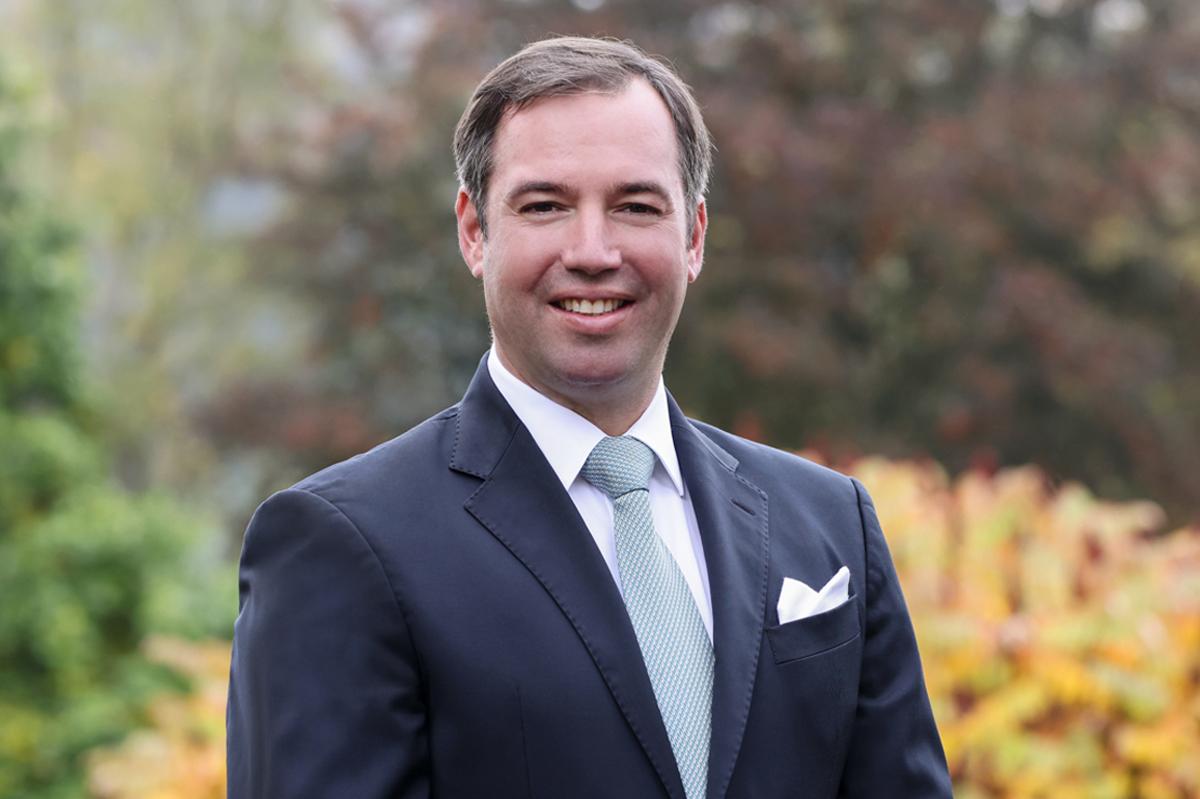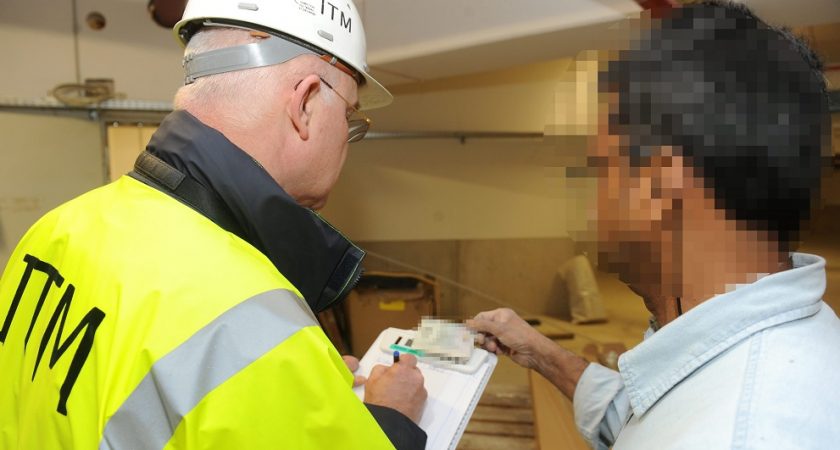Major Seizure of Smuggled Tobacco in Luxembourg ...
Jean-Claude Juncker: Donald Trump Must Be Taken Seriously ...
Luc Frieden: Europe Must Remain United Amid Security Challenges ...
Tenant Evictions in Luxembourg: Challenges and Legal Complexities ...
Luxembourg Prepares for National Celebration as Prince Guillaume’s Coronation Approaches ...
Crackdown on Labor Exploitation and Illegal Employment in Luxembourg ...
Luxembourg Faces Growing Asylum Housing Crisis Amid Rising Demand ...
Workplace Romance in Luxembourg: Forbidden or Accepted? ...
Luxembourg Defends Itself Against Tax Haven Allegations ...
Major Seizure of Smuggled Tobacco in Luxembourg

Luxembourg - February 19, 2025
Luxembourg's customs authorities have successfully intercepted and seized nearly 200 kilograms of smuggled shisha tobacco in a recent operation aimed at cracking down on tax fraud and illicit trade. This seizure is part of the country’s ongoing efforts to combat financial crimes and illegal trade practices.
According to an official report from the Luxembourg Customs Administration, the operation, conducted during extensive inspections of shisha lounges and tobacco vendors, led to the confiscation of exactly 196.76 kilograms of illicit tobacco. The unpaid duties and taxes on this shipment are estimated at €23,125.24, representing a significant loss in government revenue due to tax evasion.
In an official statement, the Luxembourg Customs Administration emphasized the importance of such measures, stating: "This seizure is part of our continued efforts to fight tax evasion, combat the illegal trade of tobacco products, and ensure consumer safety." Under current regulations, the sale and distribution of tobacco, including shisha tobacco, require official authorization from customs authorities. Any violation of these regulations results in the confiscation of goods and legal action against offenders.
This latest operation is part of a broader initiative to curb economic crimes in Luxembourg. In recent months, customs officials have also intercepted 900 kilograms of cocaine and uncovered €280,000 in undeclared cash at Luxembourg Airport. These actions underscore the country’s heightened enforcement measures and strengthened capabilities in identifying and tackling tax fraud and smuggling activities.
Jean-Claude Juncker: Donald Trump Must Be Taken Seriously

Luxembourg - February 19, 2025
Jean-Claude Juncker, former Prime Minister of Luxembourg and ex-President of the European Commission, has issued a stark warning regarding the policies of U.S. President Donald Trump. In an interview with the German publication Die Zeit, Juncker emphasized the need for the European Union to present a united front in response to Trump's strategies.
"Donald Trump and his words must be taken seriously, and the European Commission must respond with a unified stance," Juncker asserted. His remarks come in the wake of Trump's recent threats to impose higher tariffs on aluminum and steel imports to the U.S. However, Juncker pointed out that such challenges are not new for the EU, recalling that similar trade disputes had been successfully managed during his tenure at the European Commission in 2018.
When asked about the best approach for dealing with Trump, Juncker stressed that the key lies in "respect and seriousness." He noted that Trump is now more prepared and calculated compared to his first term, making his actions potentially more impactful. Given this, Juncker urged European leaders to adopt a more measured and strategic response.
The former Commission President also warned against EU member states engaging with Trump individually, advocating instead for a collective EU-wide approach. He cautioned that Trump might attempt to negotiate separately with certain European countries, a move that could undermine the EU’s collective strength. "The power of the European Union lies in its unity," he stated, urging leaders to prioritize the continent’s interests over national agendas.
Juncker’s remarks underline the growing concerns within Europe about the potential ramifications of Trump’s policies and reinforce the need for a cohesive and robust EU strategy in dealing with the United States.
Luc Frieden: Europe Must Remain United Amid Security Challenges

Luxembourg - February 19, 2025
Luxembourg’s Prime Minister, Luc Frieden, has expressed concerns over Europe’s security landscape following his participation in the Munich Security Conference. His remarks come in response to recent developments, including Luxembourg’s exclusion from a key security meeting in Paris. Frieden emphasized the need for greater coordination and unity within the European Union to effectively address security threats.
Paris Security Summit: Luxembourg’s Absence and Key Decisions
On February 17, 2025, leaders of "major European nations" convened in Paris to discuss regional security issues and geopolitical threats. French Foreign Minister Jean-Noël Barrot confirmed that the meeting was initiated by the French President but did not disclose the specific countries in attendance.
This summit was organized in response to global developments, including U.S. President Donald Trump’s decision to meet with Russian President Vladimir Putin to discuss the ongoing crisis in Ukraine. European leaders reportedly explored strategies to enhance defense cooperation, reduce reliance on U.S. security assistance, and coordinate responses to potential Russian threats.
While Frieden expressed disappointment over Luxembourg’s exclusion from the meeting, he stressed that consulting all 27 EU member states would have been a more prudent approach. He warned that security policies should be formulated with full participation from all EU nations to ensure European cohesion.
Munich Security Conference: "A Wake-Up Call for Europe"
Speaking at the Munich Security Conference, Frieden reacted to recent statements by U.S. Vice President JD Vance, describing them as "a wake-up call for Europe." He criticized the delivery of Vance’s remarks but urged European leaders to maintain composure and unity in their response.
During discussions with European Council President Antonio Costa, Frieden emphasized that the EU must avoid knee-jerk reactions and instead carefully assess U.S. proposals before presenting a unified response. "We need to fully understand what the U.S. is proposing and then react collectively," he stated.
EU-U.S. Relations and the Future of Joint Security
Frieden cautioned against any deepening divide between the EU and the U.S., stating, "They have always been our allies—historically and within NATO. Disagreements can arise even among friends, but these should not lead to division."
Regarding Ukrainian President Volodymyr Zelensky’s recent proposal for a European army, Frieden deemed it impractical in the short term but advocated for standardizing military equipment as a crucial step toward improving European defense coordination.
The Future of European Security: Challenges and the Path Forward
Frieden concluded by stating, "We have clear principles and interests, and these will be tested in the coming weeks—just as our relationship with the United States will be." His remarks come at a critical time as President Trump prepares for a meeting with Vladimir Putin, a summit from which European leaders have been notably excluded.
While the Paris summit aimed to reinforce Europe’s security policies, analysts argue that the absence of some EU nations, including Luxembourg, could undermine the legitimacy of its decisions. Whether this meeting will bring tangible changes to European security strategies remains uncertain, but a lack of full coordination among EU members could further deepen internal divisions.
Tenant Evictions in Luxembourg: Challenges and Legal Complexities

Luxembourg - February 19, 2025
The rising cost of housing has become a major concern for tenants in Luxembourg, with many fearing eviction due to skyrocketing rental prices. This growing anxiety is fueled by an increasingly strained real estate market, making secure housing more difficult to maintain.
Tenant Concerns and the Legal Framework for Evictions
The President of the Mieterschutz Tenant Protection Association states that "the fear of losing housing has become the top concern for tenants in Luxembourg." A joint study by the association and the University of Luxembourg, set to be published soon, highlights the unprecedented surge in rental costs and eviction rates, exacerbating tensions in the rental market.
Numerous tenants have reported receiving termination notices from landlords. According to Luxembourg law, rental contract termination is legally permissible under only three circumstances: serious tenant misconduct, personal necessity of the landlord, or urgent circumstances such as major renovations making occupancy unfeasible. Landlords must provide tenants with a notice period ranging from three to six months, depending on the reason for termination. However, in cases of severe tenant misconduct, landlords can seek immediate contract termination through the Justice of the Peace Court.
Legal Procedures and Tenant Challenges
The Luxembourg Ministry of Housing has clarified that termination notices can be issued via email or verbally, but a registered letter is recommended to ensure proof in case of disputes. In instances of forced eviction, the judiciary plays a crucial role, allowing tenants to request an extension through the Justice of the Peace Court. The Mieterschutz Association (www.mieterschutz.lu) and legal experts provide guidance to affected tenants on their rights and possible recourses.
Landlords’ Perspective: Insufficient Protection of Their Rights
On the other side of the debate, the President of the Luxembourg Landlords’ Association contends that, contrary to public perception, eviction rates have not increased significantly in recent years. He argues that "over the past 10 to 15 years, the number of eviction cases has remained relatively stable." While acknowledging that rising rental costs pose a challenge, he asserts that not all tenants are affected equally, particularly those who have been renting the same property for many years.
The association also highlights the sharp rise in housing-related costs, stating that "five or six years ago, the average monthly utility costs for a standard apartment were around €250. Today, that figure has risen to €400." He believes that the economic burden of these increases has had a greater impact on tenants than the rental price hikes themselves.
Tenant vs. Landlord Disputes: Is There a Solution?
The Tenant Protection Association argues that many termination notices are unlawful, emphasizing that landlords cannot simply send an email demanding that a tenant vacate the premises within two weeks due to personal necessity. They advise tenants to verify the legality of terminations before taking any action.
Conversely, the Landlords’ Association claims that current laws disproportionately favor tenants while failing to adequately protect landlords. "The legal process for terminating a lease can take up to a year and a half, discouraging many landlords from investing in the rental market," the president states. He further argues that "housing policies focus too heavily on social aspects, neglecting the concerns of property owners."
Addressing the Housing Crisis: The Need for Expansion
Despite these differences, both sides agree on one key point: Luxembourg’s rental market requires expansion to alleviate the housing crisis. The surge in rental prices is largely due to reduced home purchases and increased demand for rental properties. Many housing projects under the VEFA (sale of properties under construction) model have stalled due to buyer uncertainty, exacerbating the housing shortage.
Ultimately, increasing housing construction and investment in the real estate sector remains the most viable long-term solution. Expanding the housing supply would not only alleviate pressure on tenants but also create new opportunities for investors and developers in the construction industry.
Luxembourg Prepares for National Celebration as Prince Guillaume’s Coronation Approaches

Luxembourg - February 19, 2025
The Grand Ducal Court has officially announced that Prince Guillaume’s coronation as Grand Duke of Luxembourg will take place on October 3, 2025. The event marks a significant transition in the country’s monarchy, as Grand Duke Henri is set to abdicate in favor of his son.
During a press briefing, Luxembourg’s Prime Minister, Luc Frieden, outlined details of the historic occasion. According to the official schedule, the abdication ceremony for Grand Duke Henri will be held at the Grand Ducal Palace on the morning of October 3. Following this, Prince Guillaume, the heir to the throne, will take his oath before the Luxembourg Parliament, formally assuming his role as head of state.
A grand public celebration is planned for the following Saturday, with cultural events and festivities taking place across the country. Further details of the program will be released in the coming months. However, despite the significance of the occasion, the government has decided not to declare an official public holiday. This decision aims to encourage residents to stay in Luxembourg and participate in the national festivities rather than using an extended weekend for travel abroad.
The decision follows the announcement made by Grand Duke Henri and Grand Duchess Maria Teresa in their traditional Christmas address, in which they confirmed their intent to pass on the throne to Prince Guillaume and his wife, Princess Stéphanie, on October 3, 2025. The transition is expected to be a landmark event in Luxembourg’s modern monarchy, drawing widespread attention and public participation.
Crackdown on Labor Exploitation and Illegal Employment in Luxembourg

Luxembourg - February 19, 2025
The Luxembourg Inspectorate of Labor and Mines (ITM) has intensified its efforts to combat labor exploitation and illegal employment through a series of unannounced inspections across the country. These measures aim to identify employer violations and safeguard workers' rights, uncovering numerous breaches of labor and immigration laws.
According to official reports, inspections have revealed cases of workers employed without valid residence or work permits. In such instances, ITM has the authority to issue work stoppage orders and impose heavy fines on non-compliant employers. Additionally, in some cases, judicial authorities have issued criminal penalties, including financial sanctions and even prison sentences for offenders.
Authorities stress that illegal employment not only distorts the labor market but also creates unsafe and unfair working conditions for employees. Both citizens and migrant workers are urged to be aware of their legal rights and report any cases of labor exploitation or unauthorized employment to relevant bodies such as ITM www.itm.public.lu.
Employers, for their part, are required to verify workers' legal documentation before hiring and ensure compliance with labor and immigration regulations. Failure to adhere to these laws can lead to severe consequences, including substantial fines, operational shutdowns, and potential legal prosecution.
ITM inspections will continue in the coming months, and authorities call on all workers and citizens to report violations to the appropriate authorities. Combating labor exploitation requires collective action and the strict enforcement of labor laws to ensure a fair and secure working environment for all.
Luxembourg Faces Growing Asylum Housing Crisis Amid Rising Demand

Luxembourg - February 19, 2025
The housing crisis for asylum seekers in Luxembourg is becoming increasingly complex as demand continues to outstrip available resources. According to Max Hahn, Minister for Social Cohesion and Reception, at least 107 individuals were on the waiting list for accommodation under the National Reception Office (ONA) as of last week. These individuals are all non-vulnerable men who have traveled alone.
Despite their housing challenges, these asylum seekers continue to receive financial and material support comparable to those accommodated within ONA centers, including social aid to ensure minimum living conditions. This information was shared by Minister Hahn in response to a parliamentary question from Green Party representative Joëlle Welfring.
Unprecedented Demand and Limited Resources
Hahn noted that the number of people on the waiting list fluctuates daily, ranging from 30 to 110 individuals since December 2024. He also warned that Luxembourg’s reception centers are operating at near-full capacity, currently accommodating 97% of their total available space.
Temporary Solutions with Major Limitations
Asylum seekers who cannot be housed in ONA facilities are being redirected to emergency shelters under the "Wanteraktioun" initiative, a service designed for the homeless. However, this is only a temporary measure with significant restrictions. Individuals must re-register daily, as these shelters do not provide continuous accommodation. According to Welfring, this situation forces asylum seekers to spend at least five hours a day without shelter or a secure place to store their belongings. Since November 2024, up to 70 asylum seekers have been relying on these emergency services daily.
A New Challenge: Recognized Refugees Refusing to Leave Reception Centers
The crisis is further exacerbated by the fact that many asylum seekers who have been granted residency—some of whom have lived in Luxembourg for two to five years—continue to occupy spaces in reception centers instead of moving to independent housing. This ongoing occupation puts additional strain on the country’s resources and reduces the availability of space for newly arrived asylum seekers. Authorities have repeatedly urged these individuals to seek permanent housing, but transitioning them out of reception centers has proven difficult.
Government Under Pressure: Calls for Fairer EU-Wide Distribution
With the number of asylum applications continuing to rise, the Luxembourg government is calling for a more equitable distribution of asylum seekers across the European Union. Minister Hahn previously warned that "the number of asylum seekers arriving in Luxembourg is exceeding manageable levels," stressing that the country cannot handle the growing influx alone.
Meanwhile, government agencies are exploring alternative solutions to expand accommodation capacity. However, the challenges persist, and urgent action and enhanced coordination at the European level are needed to address the crisis effectively.
Workplace Romance in Luxembourg: Forbidden or Accepted?

Luxembourg - February 19, 2025
Romantic relationships between colleagues remain a contentious issue in workplaces across Luxembourg. Are such relationships legally permitted? Should employees disclose them openly, or is discretion the better approach? Experts weigh in on the debate.
Legal Framework and Workplace Policies
Luxembourg’s labor laws do not impose restrictions on workplace romances. Any contractual clause explicitly prohibiting romantic relationships between colleagues is generally considered unjustified and contrary to labor rights principles. However, internal company regulations may introduce certain limitations to prevent conflicts of interest or disruptions in organizational efficiency.
For example, if a relationship affects hierarchical structures, creates favoritism, or impacts job performance, employers may take measures to maintain workplace equilibrium. Some companies in Luxembourg have formal policies banning workplace relationships to mitigate managerial conflicts and prevent ethical dilemmas.
In cases where no explicit restrictions exist within a company’s policies or employment contract, should employees disclose their relationships? Many experts advise discretion in the early stages, but once a relationship becomes serious and long-term, transparency is often the best approach. Informing managers and colleagues can help prevent speculation and reduce unnecessary workplace tension.
Impact of Workplace Relationships on Professionalism
Is workplace romance frowned upon? The perception largely depends on context and the behavior of the individuals involved. If a relationship does not interfere with professional responsibilities and both parties maintain a high level of professionalism, it generally does not pose a problem.
However, relationships involving managerial hierarchy or pre-existing emotional commitments can create complications for the company. If both individuals are single, work in separate departments, and their relationship does not influence business operations, it is unlikely to cause workplace issues.
Ultimately, workplace relationships are a personal matter as long as they do not compromise the company’s functioning. Nonetheless, adherence to professional obligations and respect for internal company policies in Luxembourg remain essential to prevent potential complications.
Luxembourg Defends Itself Against Tax Haven Allegations

Luxembourg – February 19, 2025
The Luxembourg government has once again found itself at the center of controversy regarding its tax policies. In the latest wave of criticism, the investigative program Complément d'Enquête on France 2 scrutinized the tax structures of Ferrero, a multinational company headquartered in Luxembourg. The report alleged that the country facilitates tax avoidance through corporate arrangements, particularly via the Schenkenberg holding company.
The program claimed that Luxembourg's tax framework allows for no taxation on incoming and outgoing dividends or capital gains, branding the nation as a "tax haven."
Recurring Accusations and Luxembourg’s Firm Response
This is not the first time Luxembourg’s tax policies have been subject to scrutiny by French media. A notable instance dates back to 2008 when then-Prime Minister Jean-Claude Juncker dismissed similar allegations as "absurd" during a televised interview. He also pointed out that France itself was not beyond reproach when it came to financial ethics.
However, the issue has now taken a political turn. In November 2024, two French lawmakers—Mathilde Feld from the left-wing La France Insoumise (LFI) and Nicolas Sansu from the French Communist Party (PCF)—proposed that Luxembourg be placed on the list of non-cooperative tax jurisdictions.
Luxembourg’s Official Response and Recent Tax Reforms
In response to these claims, the Luxembourg government has strongly refuted allegations of being a tax haven, emphasizing the significant reforms undertaken over the past 15 years.
The Ministry of Finance highlighted the implementation of new anti-tax abuse measures designed to curb tax avoidance. It also stressed that Luxembourg fully complies with all European and international tax information exchange mechanisms. Additionally, since December 2023, the country has adopted the Pillar Two tax framework of the European Union, requiring large multinational corporations to pay a minimum tax rate of 15% on their operations in Luxembourg and other jurisdictions.
Increased Financial Transparency and Future Regulations
Luxembourg has further pledged to enhance financial transparency by introducing additional regulatory measures in the coming months, particularly in the realm of cryptocurrency taxation. These initiatives align with EU standards on tax information exchange, reinforcing the country’s commitment to a fair and transparent tax system.
Government officials have also pointed out the legal and procedural challenges of labeling an EU member state as a "non-cooperative tax jurisdiction." They insist that Luxembourg fully meets the EU’s criteria for tax cooperation and transparency.
The Ongoing Debate and Luxembourg’s Global Standing
The Luxembourg government argues that much of the criticism from French politicians and media outlets is driven by economic and political competition rather than factual concerns about tax fairness. As one of Europe’s leading financial centers, Luxembourg has continuously adjusted its tax policies to align with global standards.
Nonetheless, critics maintain that the country’s tax system allows multinational corporations to shift profits and minimize their tax liabilities in other nations. Meanwhile, the European Union remains focused on enforcing stricter tax regulations to combat tax evasion and aggressive tax planning.
By implementing new regulations and expanding financial oversight, Luxembourg aims to dispel allegations of tax avoidance and reinforce its image as a transparent and compliant financial hub. However, as international scrutiny persists, the country will need to continue its reform efforts to maintain its position in the global financial landscape.
